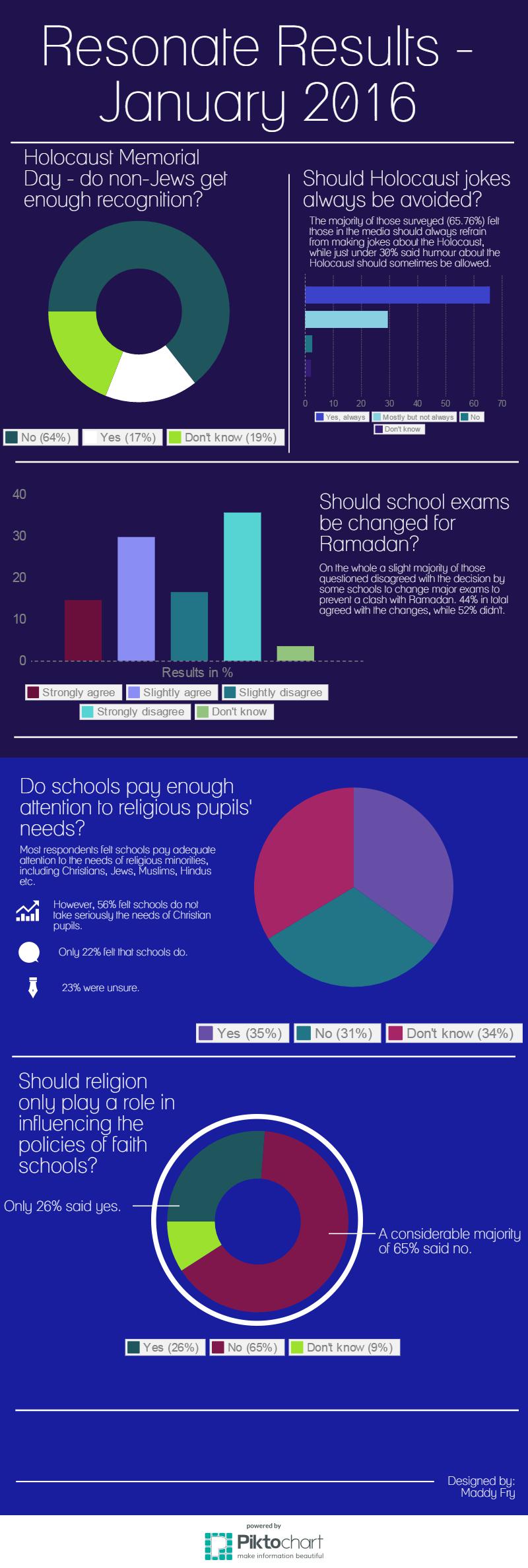Holocaust Memorial Day and Ramadan Exam Changes Survey
Date added: 09/08/18
Nearly 90% of Christians believe it is important to have a day to commemorate the Holocaust – however nearly 65% of those surveyed felt not enough attention is given to other groups that suffered under the Nazis. In a questionnaire we launched in the lead up to Holocaust Memorial Day on 27 January, the majority of respondents also believed there should be a commemorative day for all the genocides of the past 100 years, such as Armenia, Cambodia and Rwanda.
Furthermore, 54% think anti-Semitism in Britain is increasing; however only 11% had personally witnessed any incidents of anti-Semitism. A considerable majority of those questioned also believed jokes about the Holocaust in the media should always be avoided, at 66%, compared with fewer than 30% who said they should largely be avoided, but not in every instance.
This is in contrast to recent research on anti-Semitism across Europe, which is thought to be on the rise in countries like France and Germany. Jewish civil rights groups based in Germany claimed in 2014 that levels of anti-Semitism were at their worst since the Nazis, with scores of violent attacks documented on synagogues and kosher shops combined with verbal abuse directed at members of Jewish organisations. Anti-Semitic incidents in Britain were also reported to be at a record level in 2014, with the Community Security Trust, an organisation monitoring levels of discrimination and abuse against Jewish communities, claiming incidents were at their highest since 1984.
Exams during Ramadan
The survey also asked participants for their views on the changes to some school exams brought about by Ramadan, a period of fasting observed by Muslims. Head teachers had expressed concern the requirements during this time for Muslim pupils not to eat or drink during daylight hours could have a detrimental effect on performances in their GCSEs and A Levels. The Joint Council for Qualificationsclaimed to have reached the decision after consulting a range of schools and religious communities.
52% of those taking part in our survey said they disagreed with the move, which would see some of the more major exams, such as Maths and English, being moved so that pupils in a number of schools would not have to sit them during Ramadan. Most claimed schools should not make such policies based on the needs of minority groups. However, this came alongside the belief by 65% of those surveyed that schools do not pay enough attention to the needs of Christian pupils. 56% also disagreed with the view that religion should only play a role in the policies of faith schools
